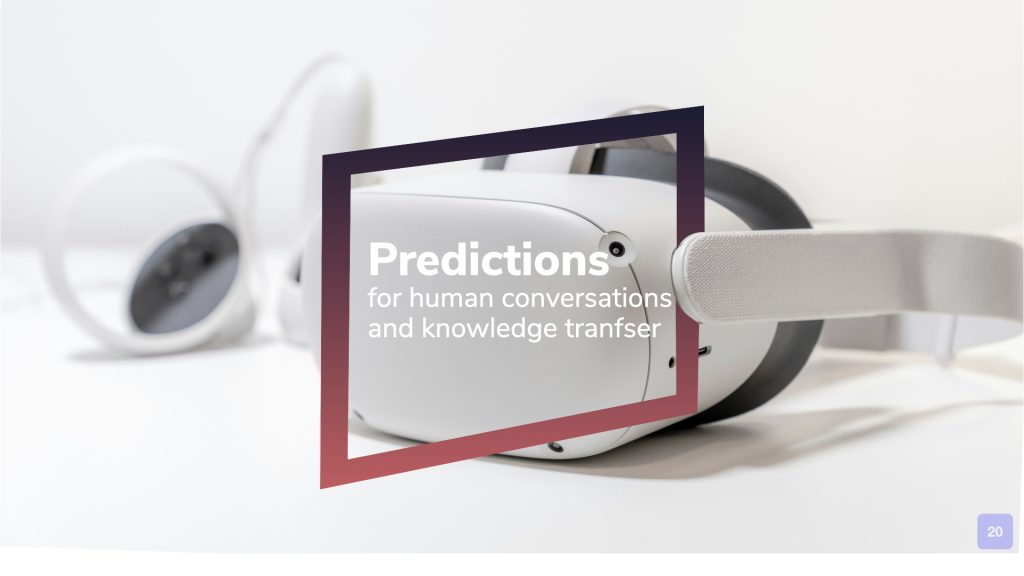
Will AI Replace Human Interaction in Healthcare? Not So Fast.
As AI and automation become more integrated into healthcare, a crucial question arises:
What’s the future of human conversation and knowledge transfer?
Will AI replace peer discussions and clinical mentorship, or will it simply redefine their role?
The answer lies in a balanced approach, where AI enhances efficiency but human interaction remains the foundation of trust, empathy, and nuanced understanding.
The Role of Human Conversation in Healthcare Today
Despite technological advancements, human conversations remain at the heart of medical learning and decision-making.
📊 By the Numbers:
A JAMA study found that peer discussions improve recall and boost confidence in clinical decision-making (JAMA study).
Why? Because real-world experience, emotional intelligence, and ethical considerations can’t be fully automated.
How AI Is Reshaping Knowledge Transfer
🚀 AI is changing the way HCPs learn and exchange knowledge, but it comes with both benefits and risks.
✅ Augmenting Conversations – AI-powered chatbots and virtual assistants handle routine queries, freeing up time for deeper, more meaningful discussions.
🚨 Risk of Dehumanization – Over-reliance on AI could diminish empathy and relational learning, making education more transactional than transformational.
A Harvard Business Review report warns that excessive automation in healthcare can erode trust between patients and providers (HBR study).
What’s Next? Predictions for the Future of Knowledge Transfer
As AI advances, human conversation will evolve but not disappear. Here’s what we can expect:
1. Hybrid Learning Models: AI + Human Interaction
🔹 AI will complement, not replace, human-led education, creating a balance between efficiency and connection.
2. Enhanced Peer-to-Peer Collaboration
🔹 Technology will enable global knowledge exchange, allowing HCPs to learn from peers worldwide.
🔹 Virtual mentorship programs and expert panels will thrive.
A McKinsey report predicts that globalized knowledge-sharing platforms will increase cross-border medical collaboration by 60% (McKinsey & Company).
3. Renewed Focus on Soft Skills
🔹 As AI takes over data-driven tasks, human educators will shift focus to soft skills like empathy, communication, and ethical reasoning.
A Stanford Medicine study found that patients feel significantly more confident in physicians who display high levels of emotional intelligence (Stanford Medicine).
Real-World Success: AI + Human Learning = Better Engagement
A leading medical association integrated AI-powered analytics with live peer discussions, allowing participants to tailor their learning experience.
📈 The Impact?
✅ 40% increase in engagement.
✅ Stronger knowledge retention and learner satisfaction.
✅ Attendees cited the balance between tech and human interaction as the key success factor.
Key Takeaways
✔ Human conversations are irreplaceable for trust-building, emotional intelligence, and nuanced decision-making in healthcare.
✔ AI will enhance, not replace, the relational aspects of knowledge transfer.
✔ The future of medical learning lies in hybrid models that balance efficiency with human interaction.
Shaping the Future of Healthcare Education
We specialize in creating hybrid learning models that merge AI-driven insights with meaningful human interaction.
📩 Get in touch today to explore how we can transform your medical education strategy!